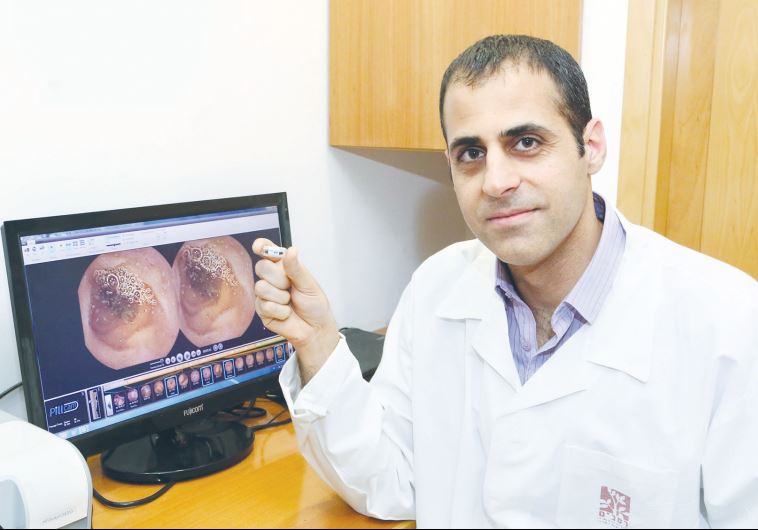ICA marks March as Colorectal Cancer Awareness month
Avoiding colonoscopy after finding occult blood is foolish; early diagnosis improves survival
 DR. ITAI MAZA shows off Given Imaging’s colorectal cancer Pillcam(photo credit: RAMBAM HOSPITAL SPOKESMAN)Updated:
DR. ITAI MAZA shows off Given Imaging’s colorectal cancer Pillcam(photo credit: RAMBAM HOSPITAL SPOKESMAN)Updated: